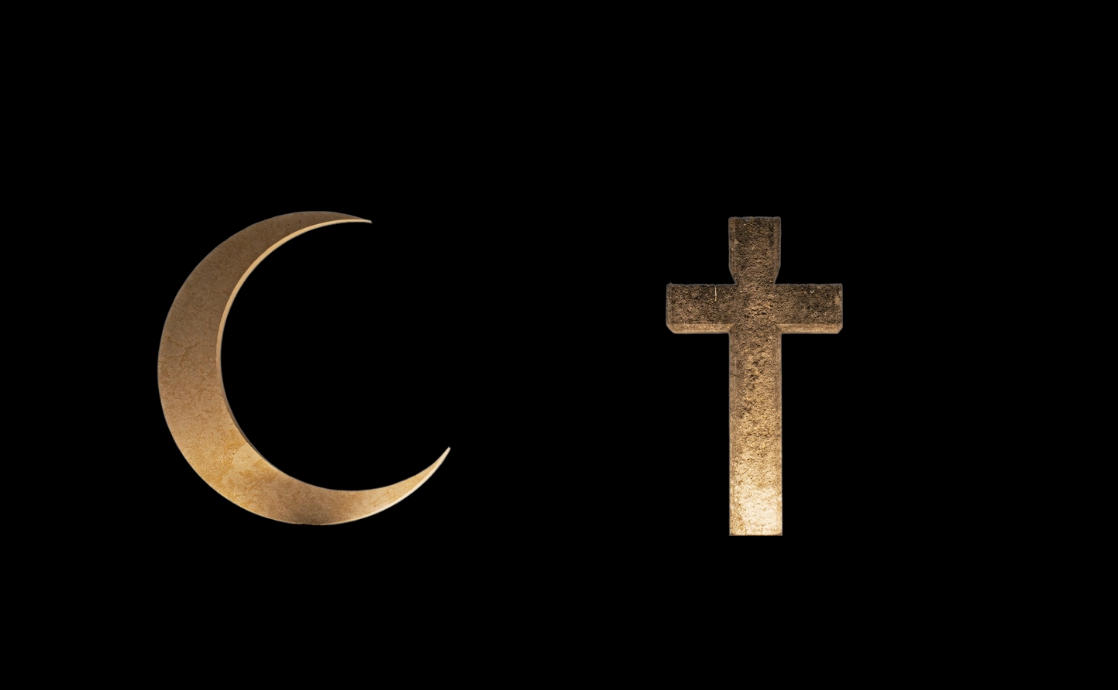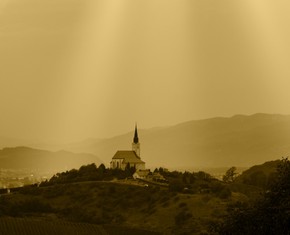The views expressed in our content reflect individual perspectives and do not represent the authoritative views of the Baha'i Faith.
If the Roman armies had attacked the early Christians, bent on destroying every one of them, what would Christ have done? Would he have “turned the other cheek,” or defended his innocent flock?
The Baha’i teachings have a fascinating response to this scenario. Abdu’l-Baha posed that important question in his book Some Answered Questions, and came to a fascinating conclusion:
You should likewise consider in fairness the following: If Christ Himself had been placed in similar circumstances and among such lawless and barbarous tribes; if for thirteen years He and His disciples had patiently endured every manner of cruelty at their hands; if they were forced through this oppression to forsake their homeland and take to the wilderness; and if these lawless tribes still persisted in pursuing them with the aim of slaughtering the men, pillaging their property, and seizing their women and children – how would Christ have dealt with them?
RELATED: Did Jesus Foretell Muhammad?
Of course, here Abdu’l-Baha is alluding to the persecution and genocidal warfare faced not by Christ, but by Muhammad. For those who consider Islam a “violent religion,” the Baha’i teachings ask “What would Christ have done?” in Muhammad’s situation. In his answer, Abdu’l-Baha said:
If this oppression had been directed towards [Christ] alone, He would have forgiven them, and such an act of forgiveness would have been most acceptable and praiseworthy; but had He seen that cruel and bloodthirsty murderers were intent upon killing, pillaging, and tormenting a number of defenseless souls and taking captive the women and children, it is certain that He would have defended the oppressed and stayed the hand of the oppressors.
What objection, then, can be directed against Muhammad? … If Christ had been placed in similar circumstances, He would have undoubtedly delivered, through an all-conquering power, those men, women, and children from the claws of such ravenous wolves.
Of course, we already know that defensive violence of this type, against a relentless enemy bent on destroying you, is common in the Bible and throughout human history.
We have only to recall the Jewish conquest of Canaan, where the Bible reports that in Heshbon the Jews fought the Amorites and after the battle, Moses reported in Deuteronomy 2:34 that the Jewish warriors: “utterly destroyed the men, and the women, and the little ones, of every city, we left none to remain.” This is the same God who sent Muhammad out to do battle with the idol-worshippers of Mecca who wanted to annihilate Islam, but this time the retribution was more limited: women and children were generally spared in Muslim attacks.
Can Entire Peoples or Countries Turn the Other Cheek?
To begin with: There is no counsel of Jesus that rulers of communities of faith should turn the other cheek while their enemies are trying to eradicate their communities. That rule only applies to affronted individuals. No Christian ruler has ever allowed his people to be the fodder of the aggressor; nor should they. Rather, Christian rulers, like all rulers, have a duty to protect those under their care.
In Ukraine today, we’re seeing this exact scenario play out.
RELATED: The Positive Power of Islamic Law in History
This, then, is precisely what Muhammad did. In Arabia he made preemptive attacks on Meccans to protect his community against the coming assaults of a much more powerful and implacable enemy. This should sound familiar to us but does not give us license to apply violent intervention willy-nilly. When there is no prophet to guide us, consideration of violence must be a last resort and must be considered in the full light of moral argument.
The Baha’i teachings offer us an answer to this perplexing modern question, as well. Baha’u’llah called for the establishment of a world commonwealth, designed to create a democratically-elected global parliament empowered to stop all wars:
The unity of the human race, as envisaged by Baha’u’llah, implies the establishment of a world commonwealth in which all nations, races, creeds and classes are closely and permanently united, and in which the autonomy of its state members and the personal freedom and initiative of the individuals that compose them are definitely and completely safeguarded. This commonwealth must, as far as we can visualize it, consist of a world legislature, whose members will, as the trustees of the whole of mankind, ultimately control the entire resources of all the component nations, and will enact such laws as shall be required to regulate the life, satisfy the needs and adjust the relationships of all races and peoples. A world executive, backed by an international Force, will carry out the decisions arrived at, and apply the laws enacted by, this world legislature, and will safeguard the organic unity of the whole commonwealth. A world tribunal will adjudicate and deliver its compulsory and final verdict in all and any disputes that may arise between the various elements constituting this universal system.
This remarkable description comes from The World Order of Baha’u’llah, Shoghi Effendi’s 1938 book outlining the Baha’i vision of a peaceful future planet. In it, the Guardian of the Baha’i Faith carefully lays out the architecture and the evolution of a united humanity, envisaged by Baha’u’llah to finally bring to an end the violence of the past.
You May Also Like
Comments

















I think it it's important to add that in this new Dispensation, Baha'u'llah has explicitly forbidden holy war. So regardless of reasons that justified holy war in the Old Testament or in the Quran, and regardless of what Jesus may have done if placed in similar circumstances, there is absolutely no justification for it to continue today, regardless of the circumstances.